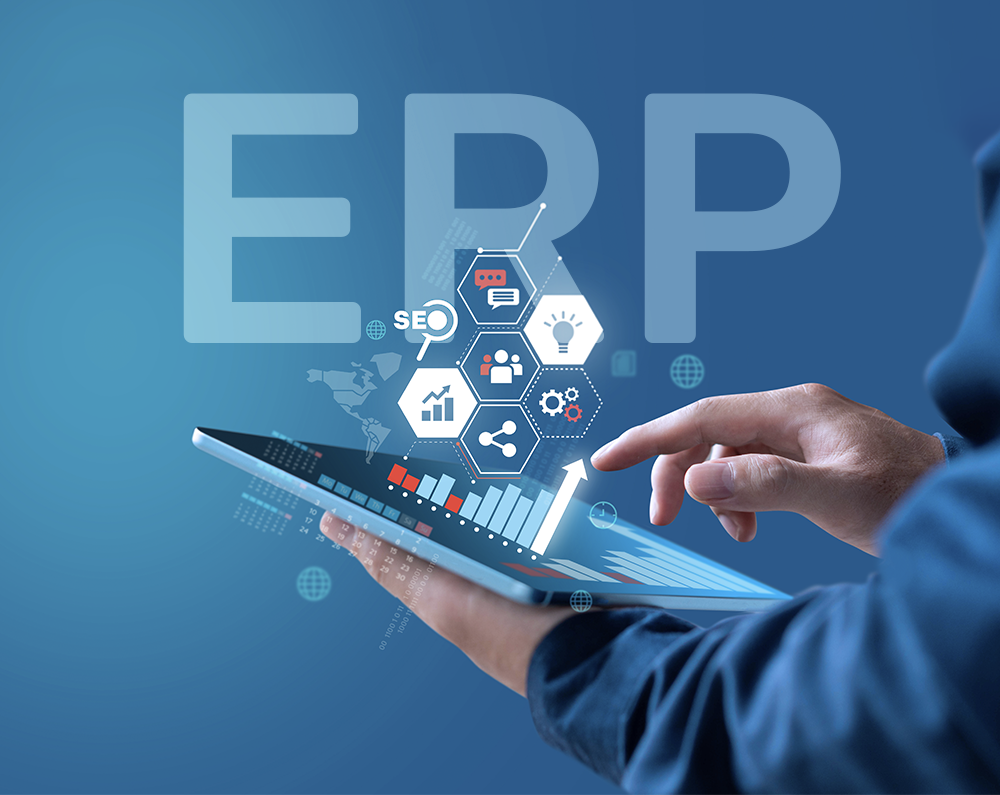
Enhancing Visibility and Control: Dynamics 365 Supply Chain Management Capabilities
How the Dynamics 365 Supply Chain Management solution ensures a more optimized supply chain.

Before any business embarks on installing or upgrading Microsoft Dynamics 365 solutions, they face a pivotal decision, which is selecting the right Microsoft Dynamics ERP solution provider. According to Gartner, over 75 percent of ERP projects will fail to meet expectations by the year 2027.
This underscores the importance of choosing a partner who can drive effective implementation, optimize your investment, streamline operations, and help you achieve your business goals. This blog will help you make a well-informed choice.
Before you start looking for a Microsoft ERP partner, it’s essential to have a clear understanding of your business requirements. Are you looking for assistance with an existing system, or do you need a complete Dynamics 365 implementation? Do you need expertise in Microsoft Dynamics Business Central or other Dynamics CRM or ERP solutions?
The partner’s role is to align with your needs, conduct a thorough audit of your business performance to determine both operational and technical enhancements and provide a solution customized to your requirements.
Whether your needs involve supply chain optimization, financial management, customer relationship management, or all of the above, having a well-defined understanding will direct you toward the right partner.
Evaluating industry-precise knowledge is crucial. A partner who understands the specific challenges and requirements of your industry will be more capable of providing tailored solutions. No matter if your industry is retail, manufacturing, healthcare, or finance, look for a partner with proven expertise in enterprise resource planning solutions.
Focus on partners with industry experience for a deeper understanding of your business operations. Check case studies and client testimonials to understand their success in previous implementations.
When narrowing down potential partners, consider their expertise in Microsoft ERP. Look for those with a strong history of successful implementations and support.
Check their specific credentials and Microsoft affiliations. A certified Microsoft Dynamics ERP solution provider will have the necessary skills to effectively manage your project. When considering potential partners, ask about their accreditation status and its relevance to your industry and ERP solutions.
Partners may vary in their approaches to implementing Dynamics 365. Some might adopt a more flexible methodology, while others may stick to a rigorous framework. It’s essential to understand the implementation strategies of potential partners to ensure they align with your company’s needs and timeline.
When it comes to deploying Microsoft Dynamics Business Central, you have several options including cloud and on-premises. Ensure that the Dynamics ERP partner you choose can accommodate your preferred deployment method. For example, if your business favors a cloud-based solution, look for a partner with capability in cloud implementations. Similarly, if you opt for on-premises implementation, your partner should have a strong track record in that area. Evidently, specified implementation approaches will facilitate a smooth transition and help avoid any delays.
Maintenance and support play a vital role in the success of any Dynamics 365 implementation. Ensure your solution provider offers comprehensive support services for Microsoft ERP. This includes ongoing maintenance, troubleshooting, as well as regular updates. Examine their support services, focusing on response times, issue resolution methods, and ongoing maintenance strategies. Reliable support ensures your system runs smoothly and that any issues are resolved promptly.
Are you ready to boost your business with Microsoft Dynamics 365? Collaborate with Korcomptenz for expert implementation and support.
Determine your budget limits clearly and communicate them with your prospective Microsoft Dynamics ERP solution provider. While cost is a critical consideration, it’s just as important to assess the total cost of ownership (TCO) throughout the system’s life cycle. A partner that offers an evident breakdown of expenses, including implementation, licensing, customization, and constant support, can help prevent unforeseen costs.
Steer clear of choosing partners solely based on the lowest initial costs, as this can result in hidden expenditures down the line. Instead, concentrate on the complete benefit and return on investment (ROI) that the implementation partner can provide.
Successful ERP implementation hinges on successful project management. Ask about the ERP partner’s methodology for planning, implementing, and monitoring ERP projects. A clearly defined and organized strategy is essential for managing budgets, timelines, and possible risks.
Seek a partner that employs industry-specific project management approaches, like Waterfall or Agile, tailored to the specifics of your project. Key indicators of a trustworthy Microsoft Dynamics ERP Solution provider include consistent progress updates, open communication channels, and a clear project timeline.
Effective requirements gathering ensures a thorough understanding of the company’s needs and pain points by both the business and the ERP implementation consultants. This process often involves exchanging a significant amount of data.
To streamline the process, standardized project documents and worksheets should be used to effectively manage and structure the exchange of information. These tools help structure the process, capture detailed requirements, and ensure both teams remain aligned throughout the project.
Our ERP consultants have extensive experience in gathering and documenting requirements efficiently. This approach is reviewed during the kick-off meeting, where any changes to the documentation process are addressed. It’s crucial that all project participants understand the requirements and documentation standards from the beginning.
The ideal ERP enterprise resource planning partner will provide on-site as well as remote assistance to ensure a smooth Go-Live process and help your team master the system. The training services provided by the partner are vital for the successful implementation of the ERP solution. A professional Dynamics ERP partner will include training and support as part of their offering, enabling your team to confidently carry out their daily responsibilities and quickly adapt to the new system.
Insufficient support during and after the Go-Live stage can jeopardize the success of your ERP implementation. It’s crucial to promote effective collaboration between your team as well as the Dynamics experts, rather than solely relying on the partner’s support.
Although often overlooked, cultural fit plays a significant role in the success of your partnership. Ensure that the partner’s work culture as well as values resonate with your own. They should act as an extension of your team rather than just being a consultant. A strong cultural alignment fosters better collaboration and a more balanced and professional working relationship
When selecting an ERP enterprise resource planning partner, Korcomptenz stands out as a trusted and experienced one. With more than 20 years of knowledge and experience, we have a time-tested record of effective Dynamics 365 implementation, maintenance, and support. Our solutions are customized to address your unique business requirements.
By collaborating with us, you gain access to our industry capability, skilled consultants, and dedication to providing value for your ERP investment.
After assessing all factors, pick out potential partners and schedule consultations to discuss your project in detail. This will help clarify their capabilities and approach. Trust your instincts when selecting a partner who will support your company’s goals and desired outcomes.
Choosing the right Microsoft Dynamics ERP Solution provider is a critical first step in your transformation. Thoroughly assess options based on industry knowledge, experience, support services, project management, cultural fit, and more to find a partner that aligns with your objectives and maximizes your Microsoft Dynamics 365 investment.
Remember, the ideal partner is a strategic supporter of your business growth. Take the time to research and make a smart decision for an effective partnership. Contact us for more information.

How the Dynamics 365 Supply Chain Management solution ensures a more optimized supply chain.

During a recession, the impact on the supply chain can be significant. There are some key considerations to understand the effect, overcome the challenges, and make your supply chain recession-proof.

Find out about the top ERP trends to get your organization ahead in 2023 and after. The trend is towards emerging technologies and concepts like composable ERP solutions.
| Cookie | Duration | Description |
|---|---|---|
| cookielawinfo-checkbox-analytics | 11 months | This cookie is set by GDPR Cookie Consent plugin. The cookie is used to store the user consent for the cookies in the category "Analytics". |
| cookielawinfo-checkbox-functional | 11 months | The cookie is set by GDPR cookie consent to record the user consent for the cookies in the category "Functional". |
| cookielawinfo-checkbox-necessary | 11 months | This cookie is set by GDPR Cookie Consent plugin. The cookies is used to store the user consent for the cookies in the category "Necessary". |
| cookielawinfo-checkbox-others | 11 months | This cookie is set by GDPR Cookie Consent plugin. The cookie is used to store the user consent for the cookies in the category "Other. |
| cookielawinfo-checkbox-performance | 11 months | This cookie is set by GDPR Cookie Consent plugin. The cookie is used to store the user consent for the cookies in the category "Performance". |
| viewed_cookie_policy | 11 months | The cookie is set by the GDPR Cookie Consent plugin and is used to store whether or not user has consented to the use of cookies. It does not store any personal data. |